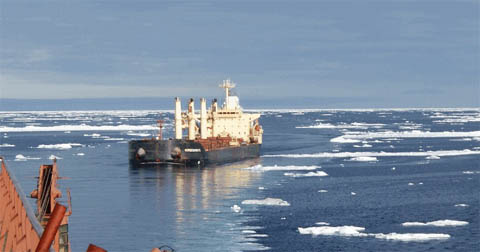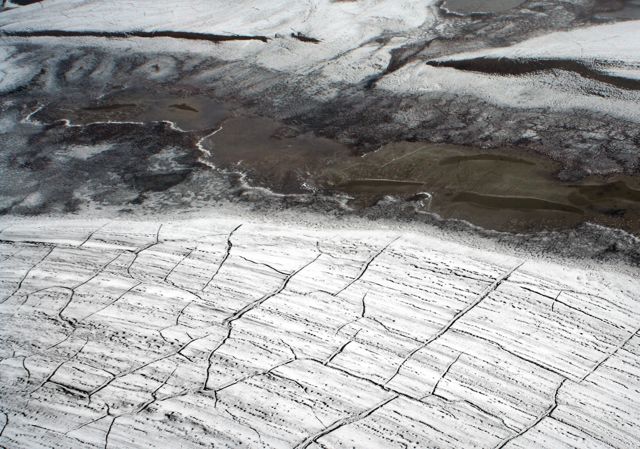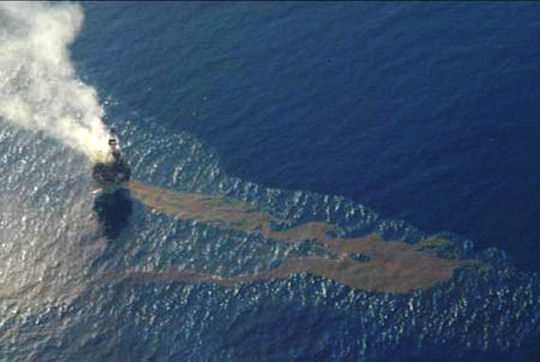|
|
|
|
|
|
|
|
No Arctic-science events are announce for today.
|
Media
 Virtual Reality Could be the Future of Arctic Navigation Training. Virtual Reality Could be the Future of Arctic Navigation Training. Denmark's Ministry of Industry, Business and Financial Affairs has published an Executive Order describing the training and qualification requirements for masters, officers and other personnel who are part of the guard on the bridge for ships operating in polar areas. The Danish Executive Order entered into force on July 1, 2018. Maritime Executive
Davie Aims to Replace Canadian Coast Guard's Entire Icebreaker Fleet. Chantier Davie Canada Inc., the country's largest shipbuilding firm, is gunning for contracts to build new icebreakers for the Canadian Coast Guard. "Given the age of the Canadian Coast Guard fleet, the entire icebreaker fleet will need to be replaced in the near future," says Alex Vicefield, CEO of Inocea Group, which has owned Davie since 2012. "We have every intention of submitting a world-class proposal together with global leaders in icebreaker design." CBC News
 How is Carbon 'Stored' in Soils of the Arctic and Subarctic? How is Carbon 'Stored' in Soils of the Arctic and Subarctic? Carbon is a key element, weaving its way through the survival of all living things. The Soil Science Society of America (SSSA) July 1 Soils Matter blog explains how carbon gets into soil, and how climate change is making a difference. "Carbon moves readily between atmosphere, oceans, and terrestrial environments in response to natural processes and human activities," says blog writer Mark Clark. Clark is a Certified Professional Soil Scientist and retired NRCS Alaska soil scientist. "Massive amounts of carbon are stored in soil and plants, oceans, and in geologic formations such as coal, oil, and gas." NewsWise
What is the fate of Arctic Methane? Climate change could spur greenhouse gas release from the Arctic. A new project will synthesize existing data to improve uncertain predictions. EOS.
|
|
Future Events
 Coastal Response Research Center Requests Input on the State of Science on Dispersant Use in the Arctic. The Coastal Response Research Center (CRRC) recently collected statements and reports on five topic areas related to dispersant use in the Arctic: efficacy and effectiveness; physical transport and chemical behavior; degradation and fate; eco-toxicity and sublethal impacts; and, public health and food safety. CRRC request written input on the statements the scientists made on the state-of-the-science regarding dispersant use, particularly as it applies to Arctic waters. Written comments are requested by July 13th. More information on this initiative is available here. Coastal Response Research Center Requests Input on the State of Science on Dispersant Use in the Arctic. The Coastal Response Research Center (CRRC) recently collected statements and reports on five topic areas related to dispersant use in the Arctic: efficacy and effectiveness; physical transport and chemical behavior; degradation and fate; eco-toxicity and sublethal impacts; and, public health and food safety. CRRC request written input on the statements the scientists made on the state-of-the-science regarding dispersant use, particularly as it applies to Arctic waters. Written comments are requested by July 13th. More information on this initiative is available here.
17th International Congress of Circumpolar Health (ICCH17), August 12-15, 2018 (Copenhagen, Denmark). The ICCH congresses are held every third year in different locations in the circumpolar area and represent the largest scientific meetings worldwide on circumpolar health. The ICCH congresses serve as the primary source of information exchange and scholarly communication in issues relating to circumpolar health. More than 750 participants generally register and participate in each Congress, and more than 400 scientific papers or posters are usually presented.
UArctic Congress 2018, September 3-7, 2018 (Oulu and Helsinki, Finland). The UArctic Congress 2018 will bring together key UArctic meetings and a science conference into one single gathering, including business meetings of the Council of UArctic, Rectors' Forum, Student Forum, and Thematic Networks & UArctic Institutes Leadership Team. The Congress is an integral part of the Finland's Arctic Council chairmanship program, and open to the public. The event will highlight the themes and priorities of the Finnish chairmanship, including the goals of the United Nations' 2030 Agenda for Sustainable Development, and the Paris Agreement under the UN Framework Convention on Climate Change.
Scientific Exploration of the Arctic and North Pacific (SEA-NorP), September 25-27, 2018 (Mt. Hood, Oregon USA). This workshop will include discussion of hypotheses that can be tested by scientific drilling in the region, the technology necessary to achieve those goals, ideal sites for drilling based on existing data, and where additional site survey data is needed. The goal of the workshop organizers is that multiple proposals will be initiated at the workshop, both for full cruise legs and for shorter, targeted expeditions around the following themes: ocean gateways, geohazards, volatile cycling, ice histories at transition zones, biosphere and climate.
The second Arctic Biodiversity Congress is hosted by the Conservation of Arctic Flora and Fauna (CAFF), the biodiversity working group of the Arctic Council, and the Ministry of the Environment, Finland. The second Arctic Biodiversity Congress will build on the success of the first Congress, held in 2014 in Trondheim, Norway, and will bring together scientists, policymakers government officials, Indigenous representatives, Traditional Knowledge holders, industry, non-governmental organizations, and others to promote the conservation and sustainable use of Arctic biodiversity.
|
|

  
4350 N. Fairfax Drive, Suite 510
Arlington, VA 22203, USA
External links in this publication, and on the USARC's World Wide Web site ( www.arctic.gov) do not constitute endorsement by the US Arctic Research Commission of external Web sites or the information, products or services contained therein. For other than authorized activities, the USARC does not exercise any editorial control over the information you may find at these locations. These links are provided consistent with the stated purpose of this newsletter and the USARC Web site.
|
|
|
|
|
|
|
|
|
 Virtual Reality Could be the Future of Arctic Navigation Training. Denmark's Ministry of Industry, Business and Financial Affairs has published an Executive Order describing the training and qualification requirements for masters, officers and other personnel who are part of the guard on the bridge for ships operating in polar areas. The Danish Executive Order entered into force on July 1, 2018. Maritime Executive
Virtual Reality Could be the Future of Arctic Navigation Training. Denmark's Ministry of Industry, Business and Financial Affairs has published an Executive Order describing the training and qualification requirements for masters, officers and other personnel who are part of the guard on the bridge for ships operating in polar areas. The Danish Executive Order entered into force on July 1, 2018. Maritime Executive How is Carbon 'Stored' in Soils of the Arctic and Subarctic? Carbon is a key element, weaving its way through the survival of all living things. The Soil Science Society of America (SSSA) July 1 Soils Matter blog explains how carbon gets into soil, and how climate change is making a difference. "Carbon moves readily between atmosphere, oceans, and terrestrial environments in response to natural processes and human activities," says blog writer Mark Clark. Clark is a Certified Professional Soil Scientist and retired NRCS Alaska soil scientist. "Massive amounts of carbon are stored in soil and plants, oceans, and in geologic formations such as coal, oil, and gas." NewsWise
How is Carbon 'Stored' in Soils of the Arctic and Subarctic? Carbon is a key element, weaving its way through the survival of all living things. The Soil Science Society of America (SSSA) July 1 Soils Matter blog explains how carbon gets into soil, and how climate change is making a difference. "Carbon moves readily between atmosphere, oceans, and terrestrial environments in response to natural processes and human activities," says blog writer Mark Clark. Clark is a Certified Professional Soil Scientist and retired NRCS Alaska soil scientist. "Massive amounts of carbon are stored in soil and plants, oceans, and in geologic formations such as coal, oil, and gas." NewsWise

